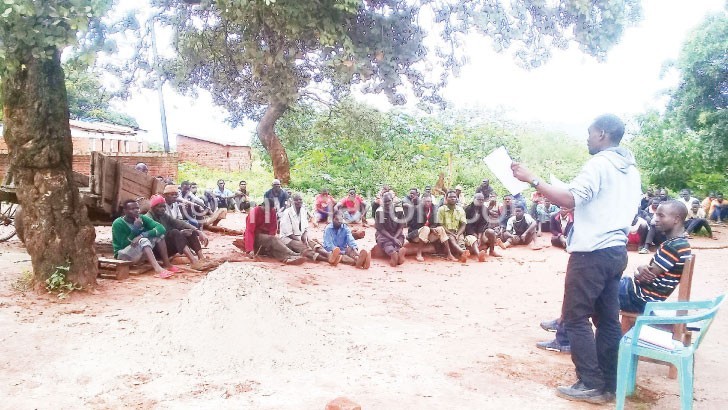Solar power jolts Sitolo
Every day is a busy day in Sitolo Village in Mchinji.
When one is approaching the border area in Traditional Authority (T/A) Mlonyeni, it is clear that the village is putting on a new face despite being far away from Electricity Supply Corporation of Malawi (Escom) power lines.
Although Sitolo is not connected to the national grid, electricity poles and overhead lines can be seen, thanks to a solar power mini-grid taking shape in the rural area near the western border between Malawi and Zambia.

In the village, Community Energy Malawi (CEM), with the help from United Nations Development Programme (UNDP) and government, is implementing the project to increase the number of Malawians with access to electricity for both domestic and commercial use. According to Escom, just a tenth of the country’s population connected to the national grid.
Currently, the solar power mini-grid supplies Sitolo Village, but plans are underway to extend power lines to surrounding villages, starting with Ndawambe, Molosiyo and Chisenga.
In Sitolo alone, 150 homes, three churches, six primary school teachers’ houses, an under-five clinic and three health workers’ houses will be connected to the 80-kilowatt mini-grid.
Even more, local entrepreneurs are optimistic that access to electricity will boost their businesses and incomes.
Contrary to popular perception that electricity derived from the sun cannot power a maize mill, Sitolo village will have one.
Currently, the village uses a diesel-powered grinding mill, but its operator Henry Daka is worried that villagers do not like the flour it churns out. In fact, some customers cross the border into Zambia to access maize mills powered by hydro-power.
But this is going to be history.
“Solar-powered maize mill will ensure all people who used to go across the border use the one in the village. This means increased income for us,” said Daka, who also thought that solar power cannot drive heavy machines.
But he cannot wait to have it for the business, he said.
People of Sitolo are hard-working. In the remote setting, there is livestock, ox-carts, satellite TV dishes and cars.
Ignatio Chirombo, who runs a solar-powered barber shop, is looking forward to growing in business when CEM switches on the decentralised solar mini-grid.
“People in this area are development-oriented, you can see it for yourself. We work hard in several businesses, and what was missing was reliable supply of electricity,” he said.
For two days, there was no sunlight and the barber shop operated at a loss.
“Imagine how much I can make with constant supply of electricity. Just try us and see how this place will change,” challenged Chirombo.
It is easy to agree with him. Everything about Sitolo Village bears testimony to the hardworking spirit that is there.
According to Chirombo, solar power could indeed be the only missing piece in the puzzle of rural development.
There is anticipation and excitement with the villagers themselves getting involved in every process.
The majority of them have paid K20 000 in instalments to get connected to the grid. The subsidised amount, a requisite for those interested to get connected, will be administered by CEM to support the village committee and technicians running the project.
The committee comprises 40 members drawn from all four villages. Women comprise almost half of the committee, with some of them being trained as technicians.
The quest for gender equality is a deliberate move by CEM to ensure women are not left behind.
“We have deliberately empowered the villagers in order to sustain the project. At the end of the day, if the owners are able to do everything by themselves, with CEM playing an overseeing role, the project will serve this area for a long time,” said CEM energy development officer Moses Gondwe.
Solar powered electricity requires strict adherence to the technical capacity of the system, the project’s greatest threat.
However, village head Sitolo and committee member Ernest Nthani are happy that the villagers have been sensitised to the proper handling of the solar power system.
“We have had several meetings on this. I tell my people that this is a once-in-a-lifetime opportunity. Let us take care of the project by doing only what we are told to do,” said the traditional leader.
There is belief and hope in Sitolo. For the people long denied access to electricity, the future seems bright.
Blessings Zulu cannot wait to restart his metal welding business when the project rolls out. Even Georgina Zulu is dreaming to enlarge her salon and cosmetic business.
Likewise, Bibiana Epulani is looking beyond just lighting her home. She wants to transform her life by putting solar energy to productive use.
Clearly, there are many problems in Sitolo—but soon lack of electricity will be none of them. n





